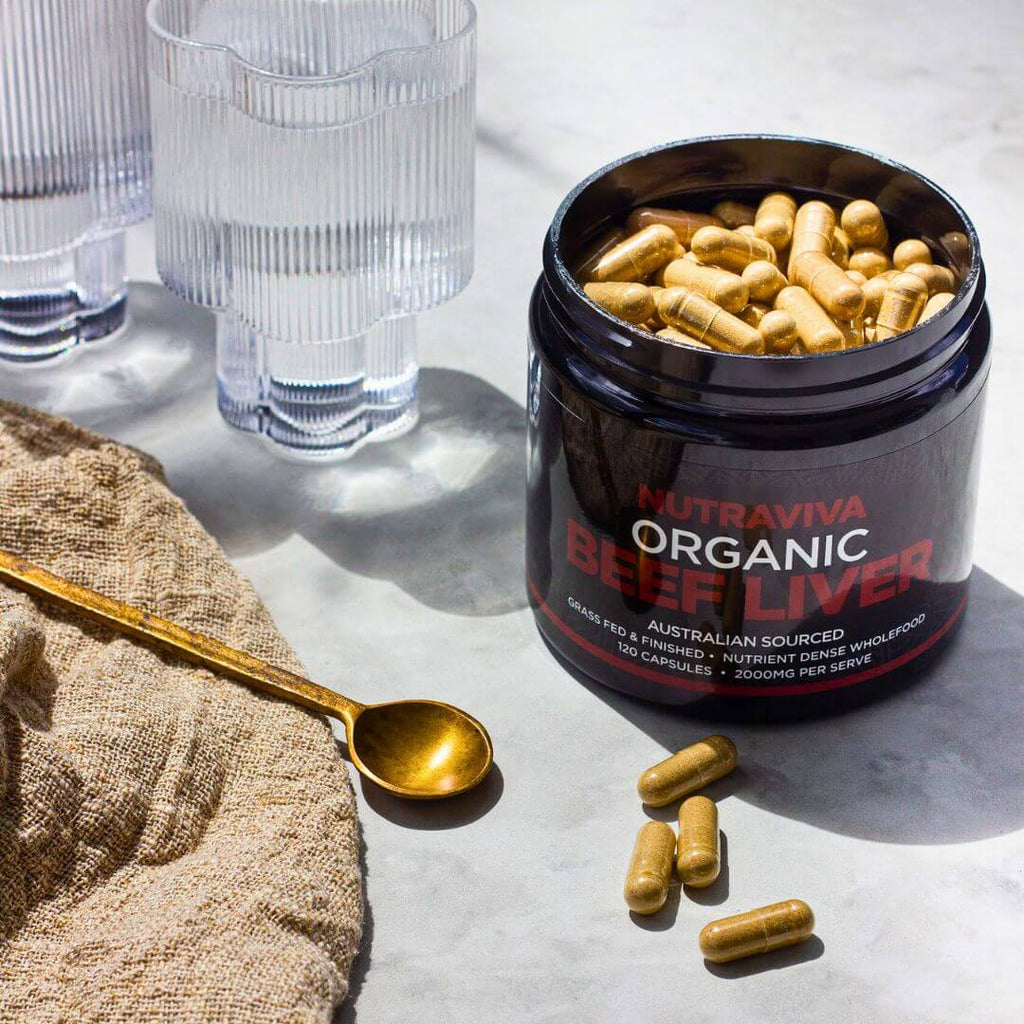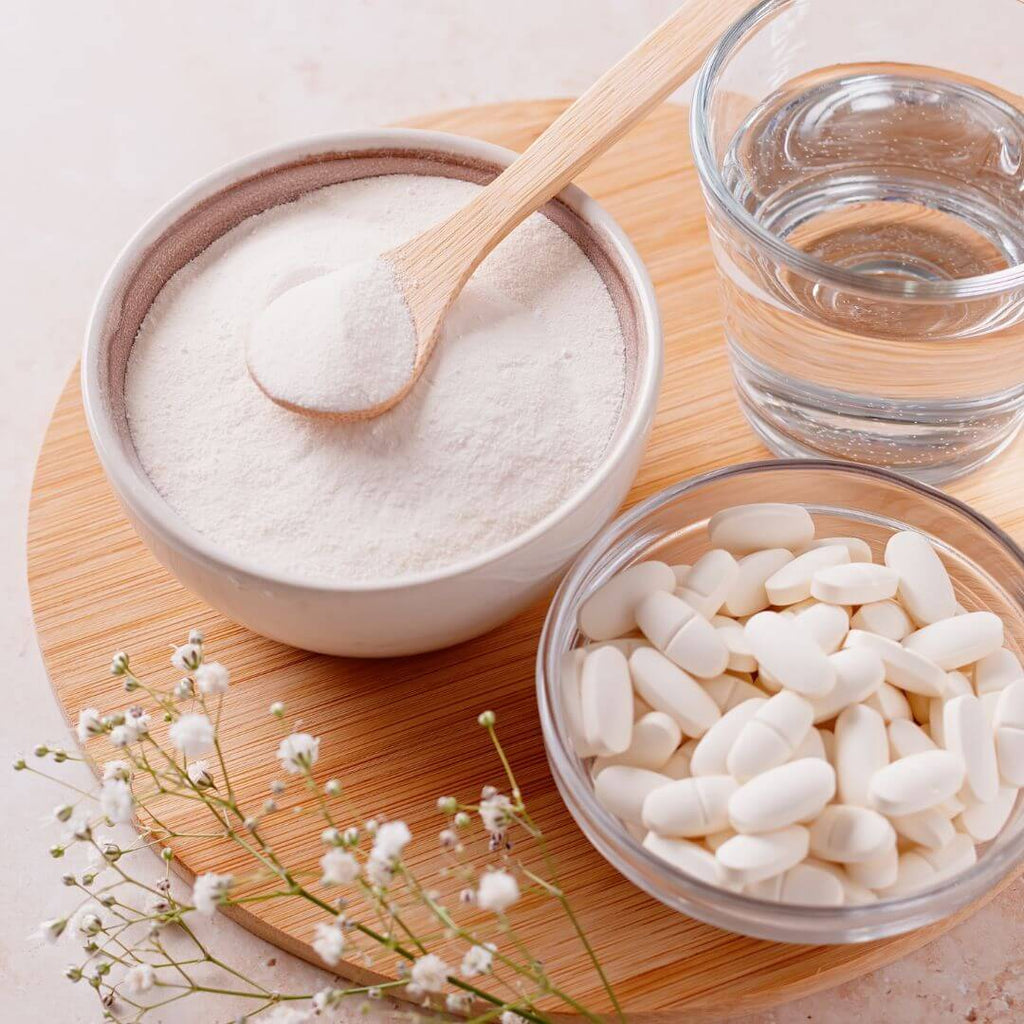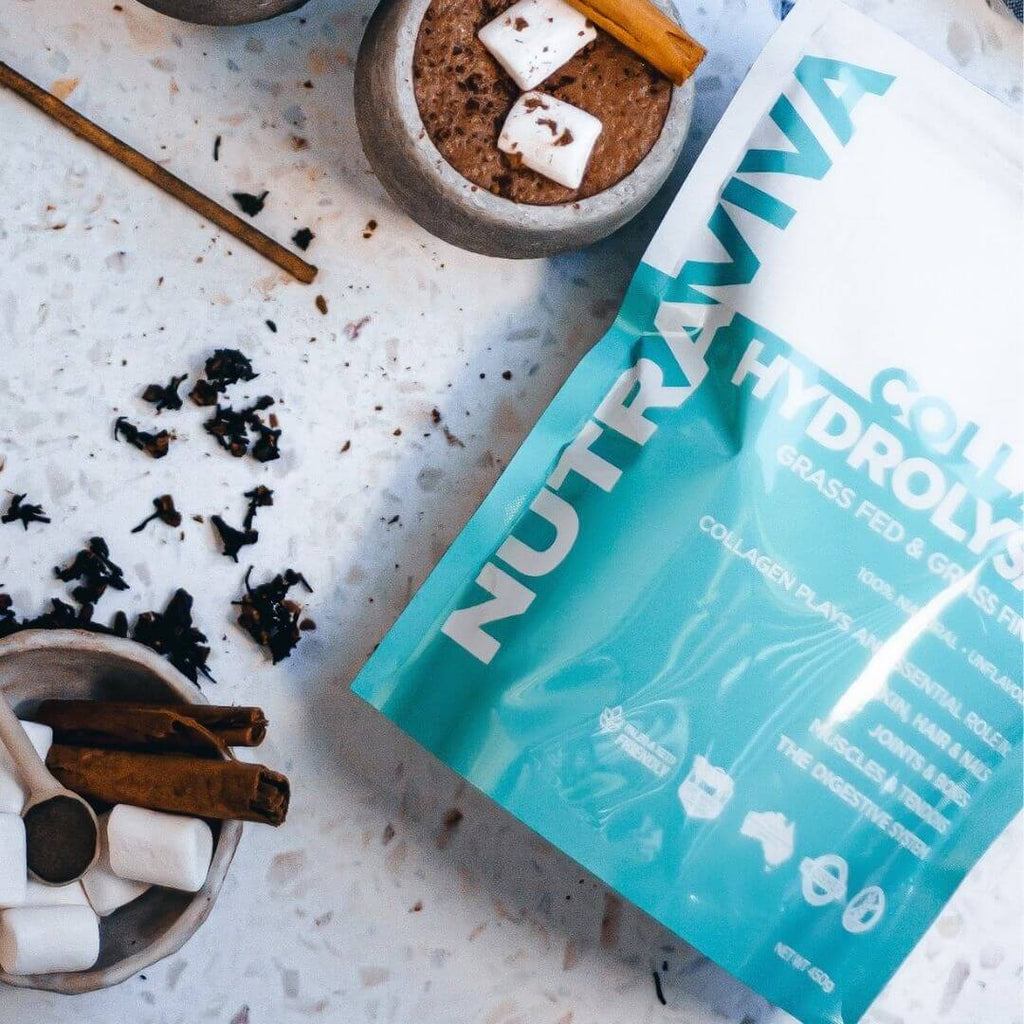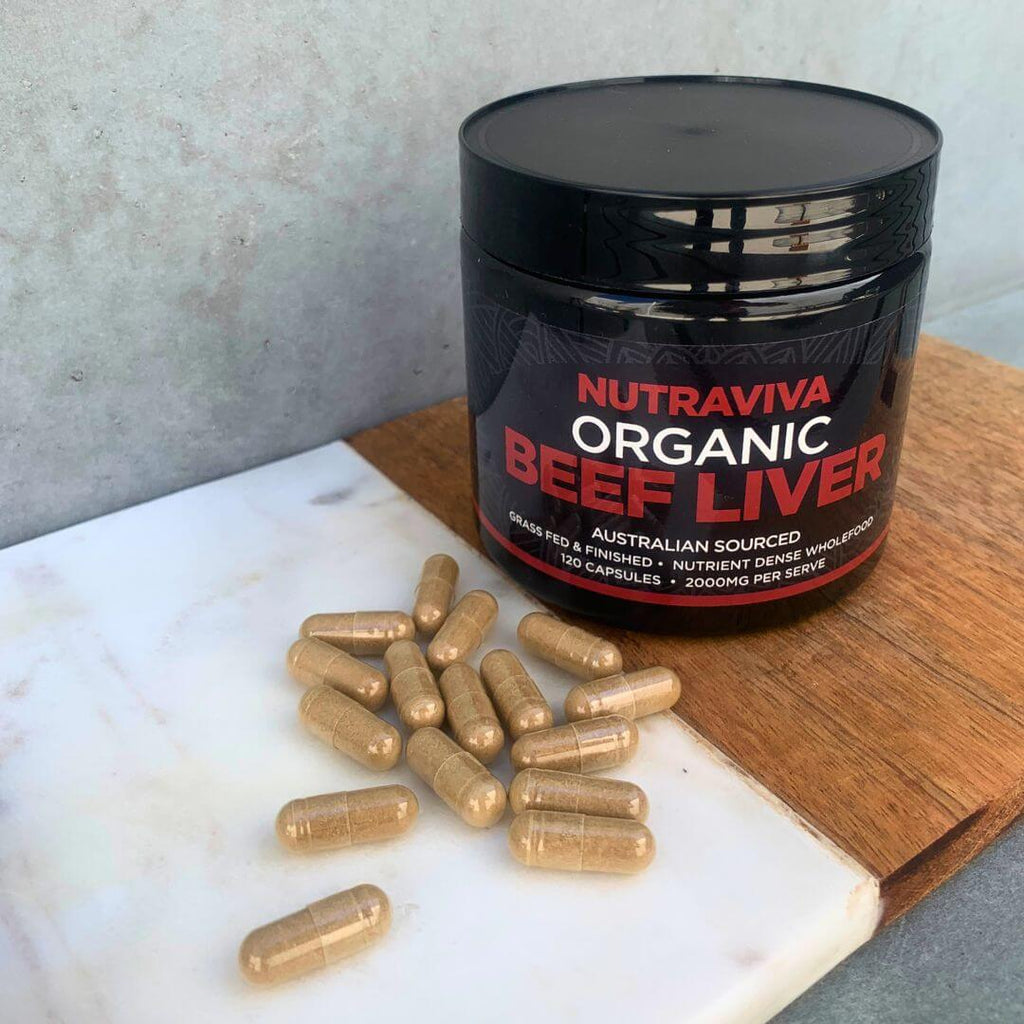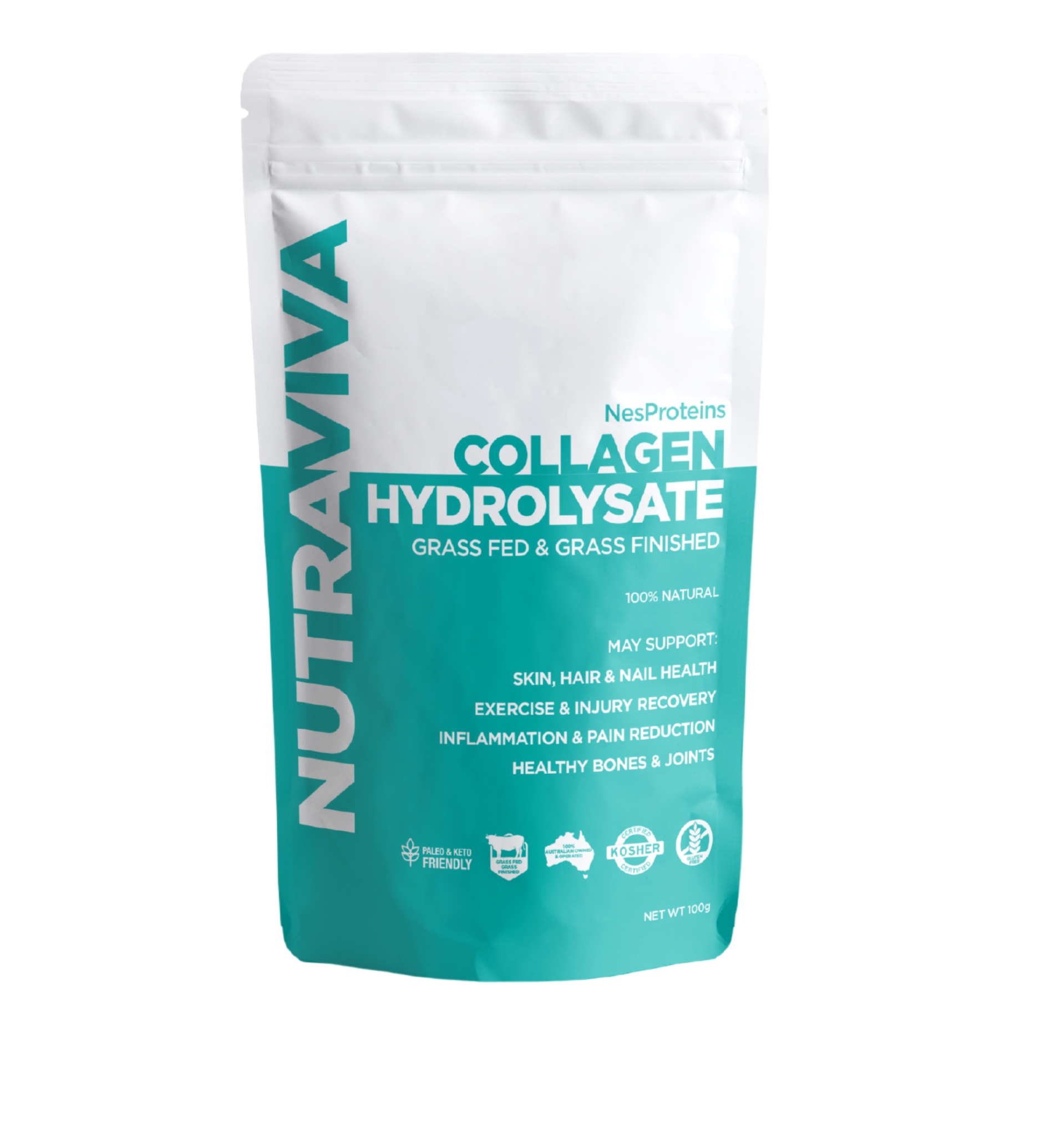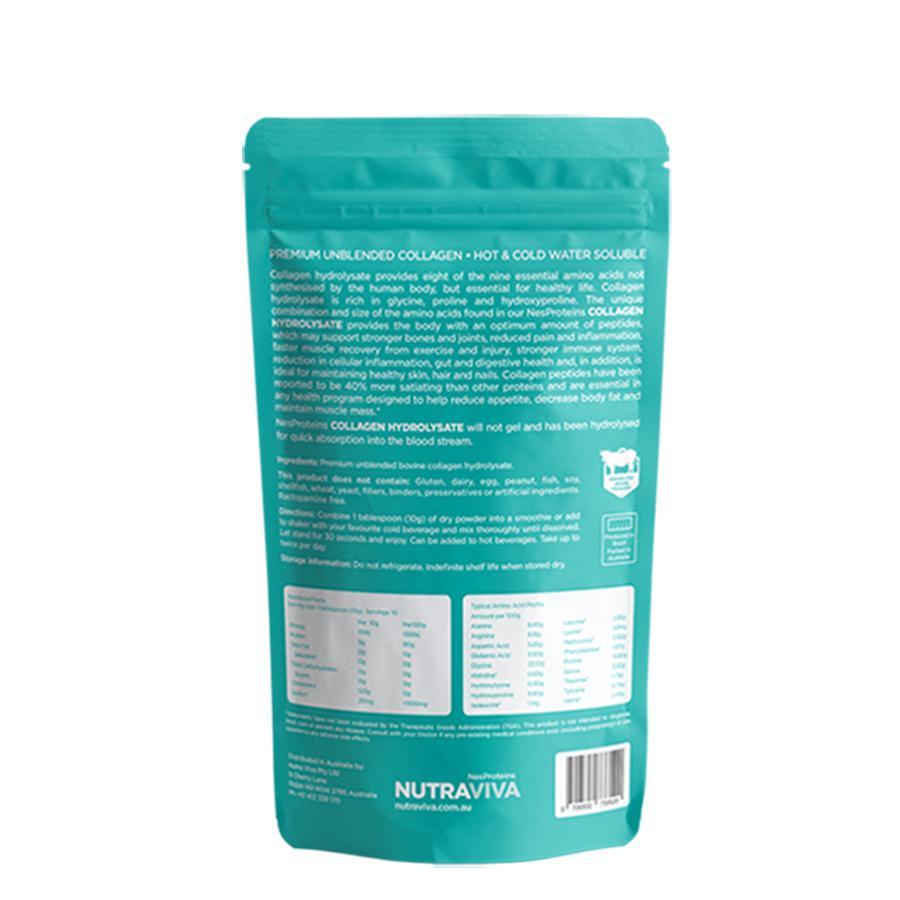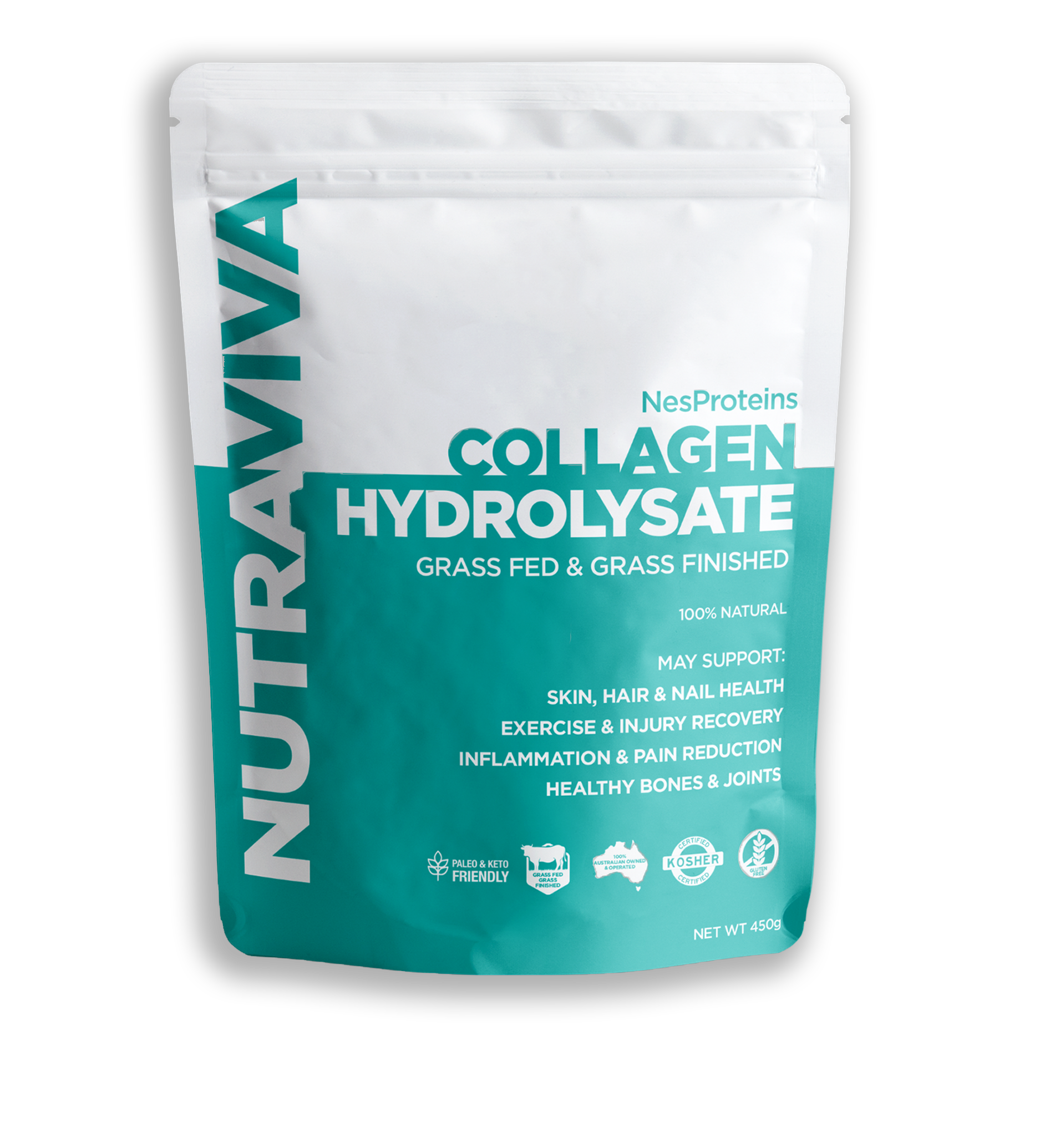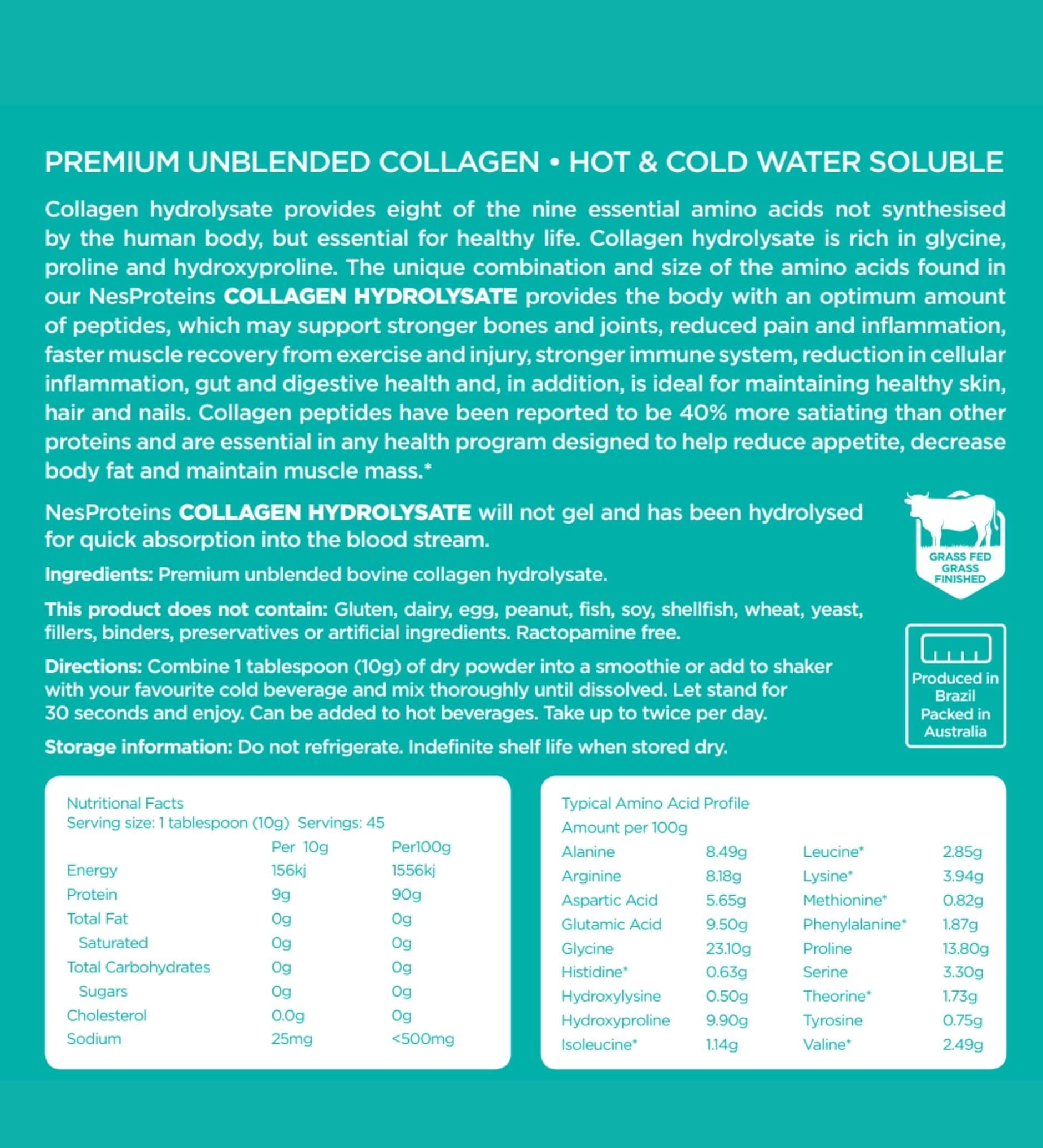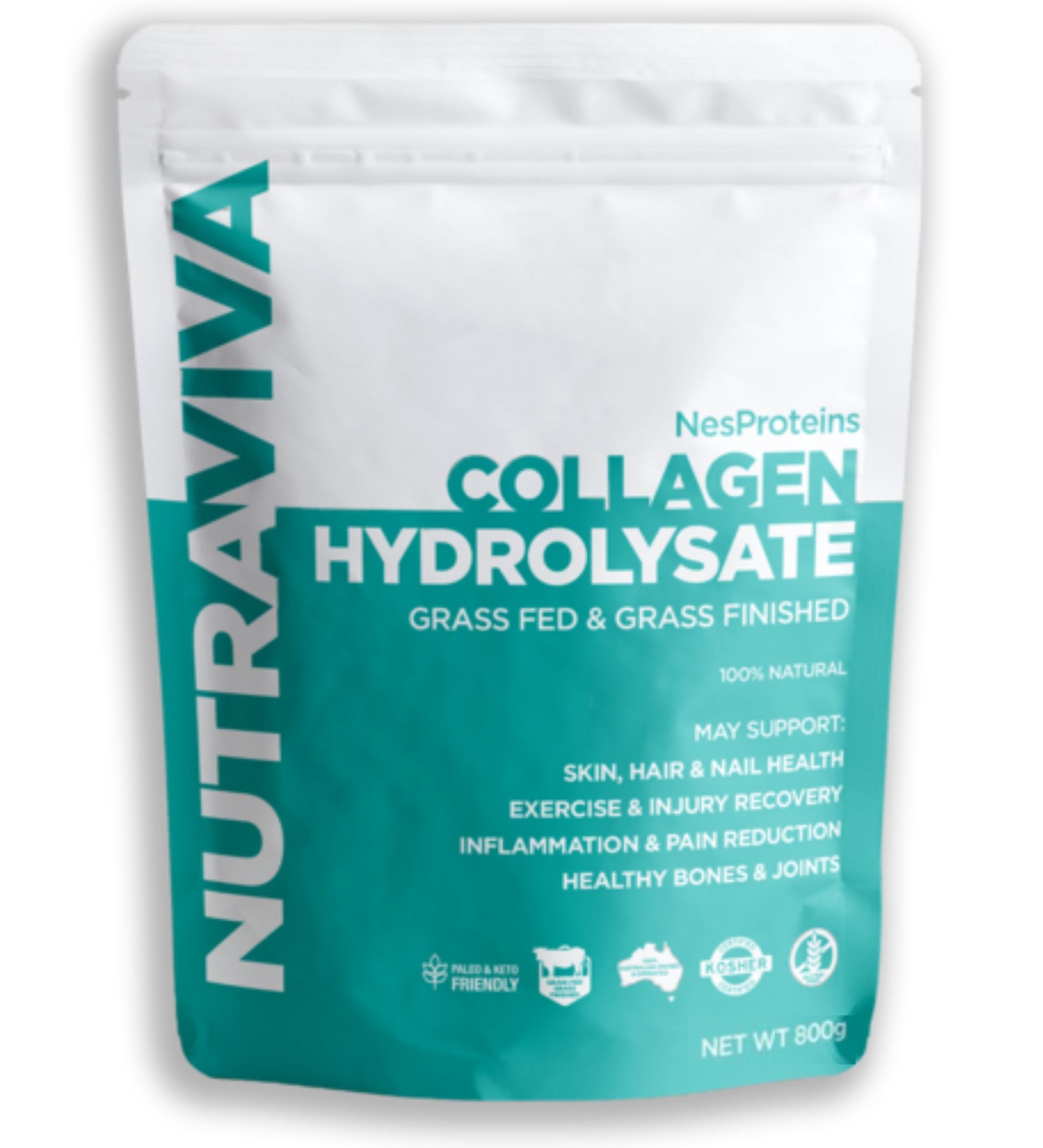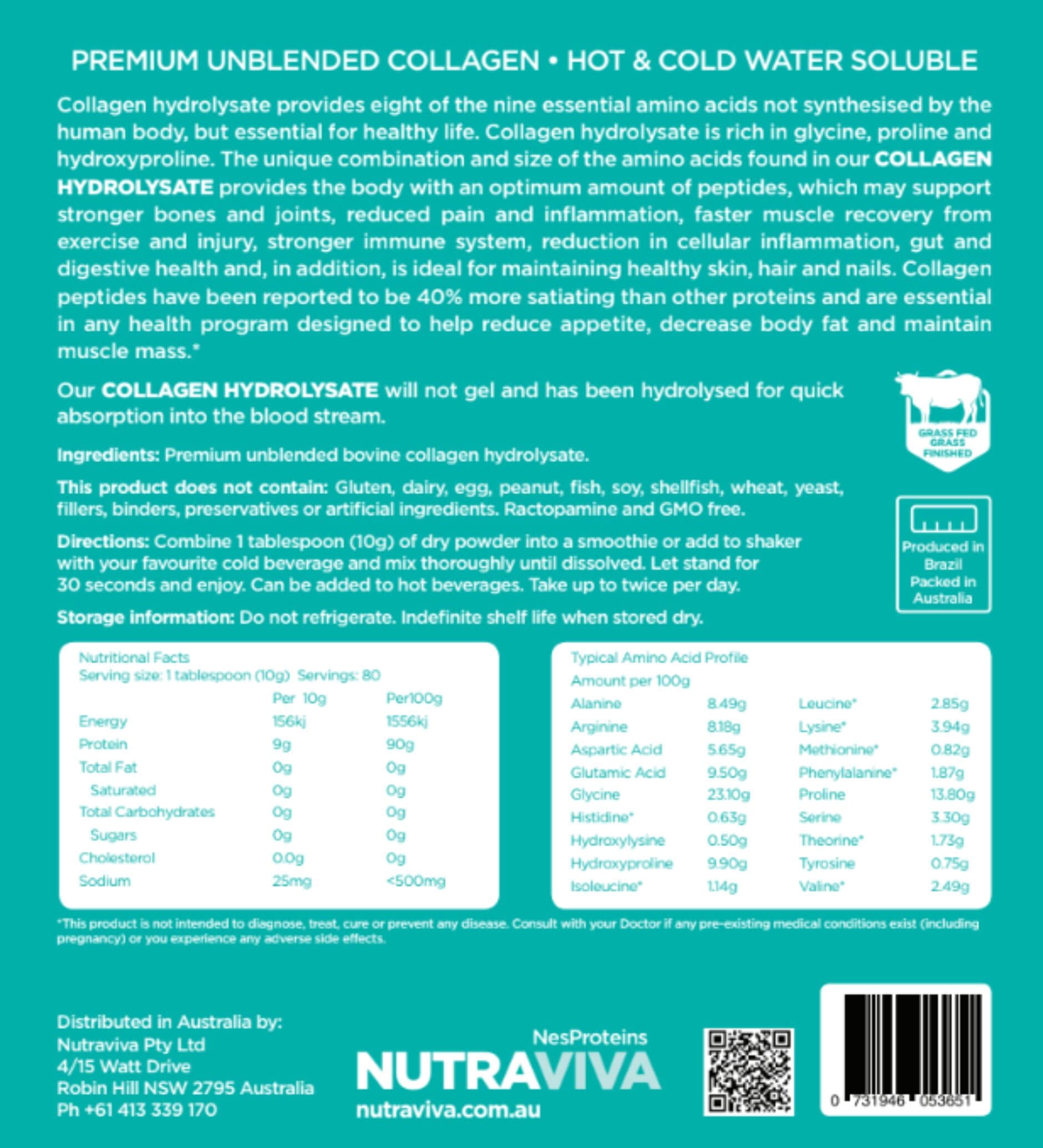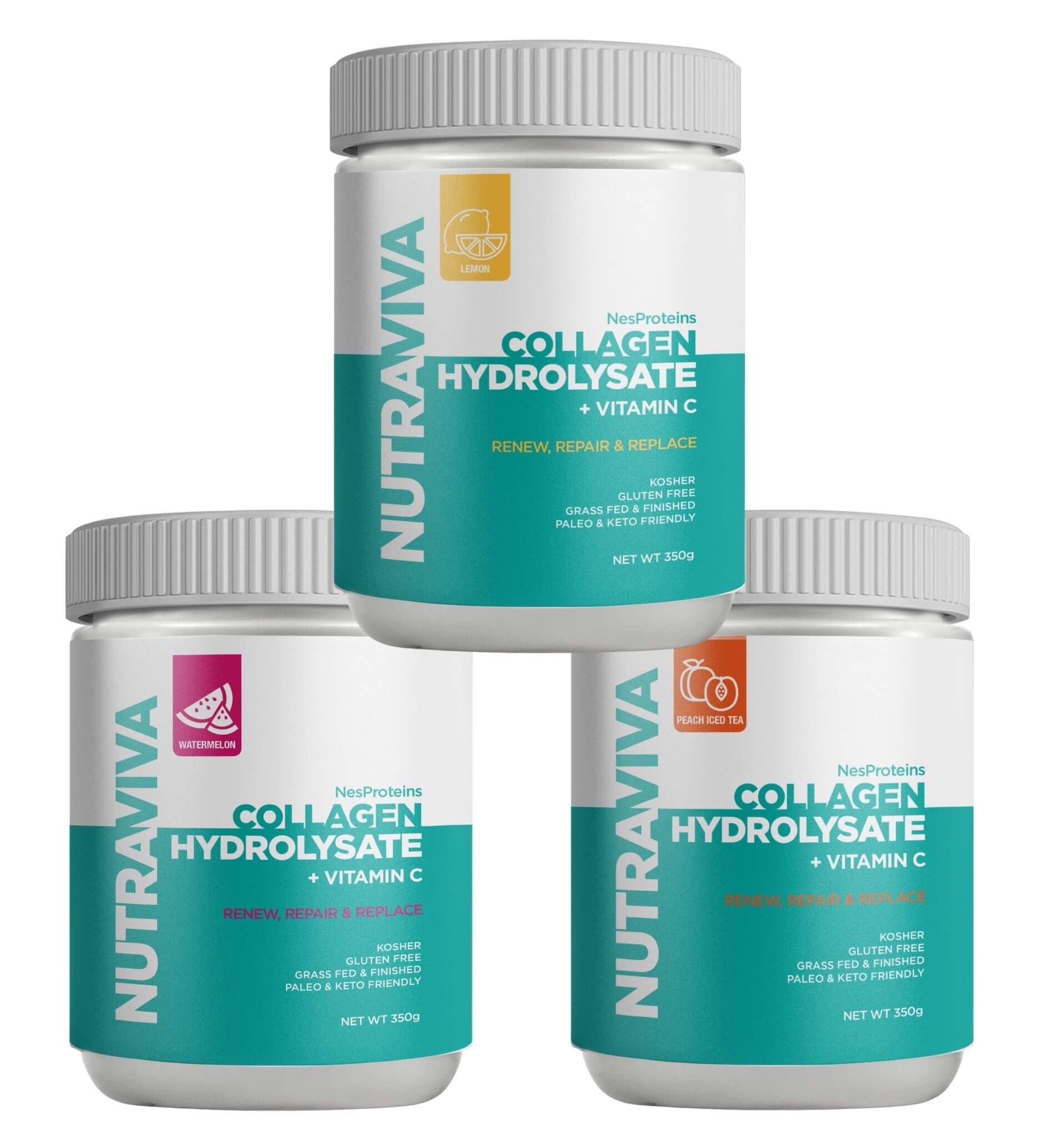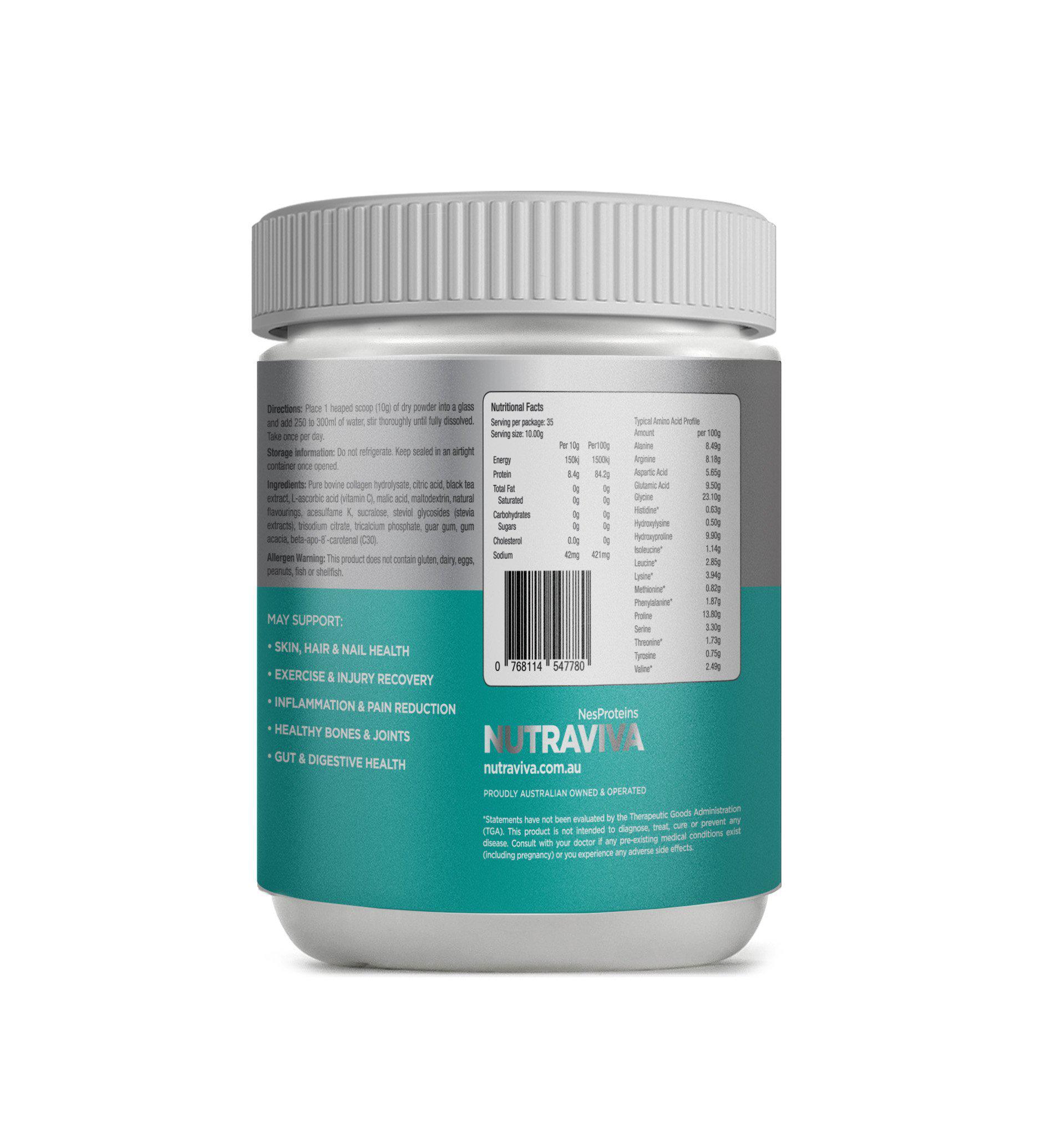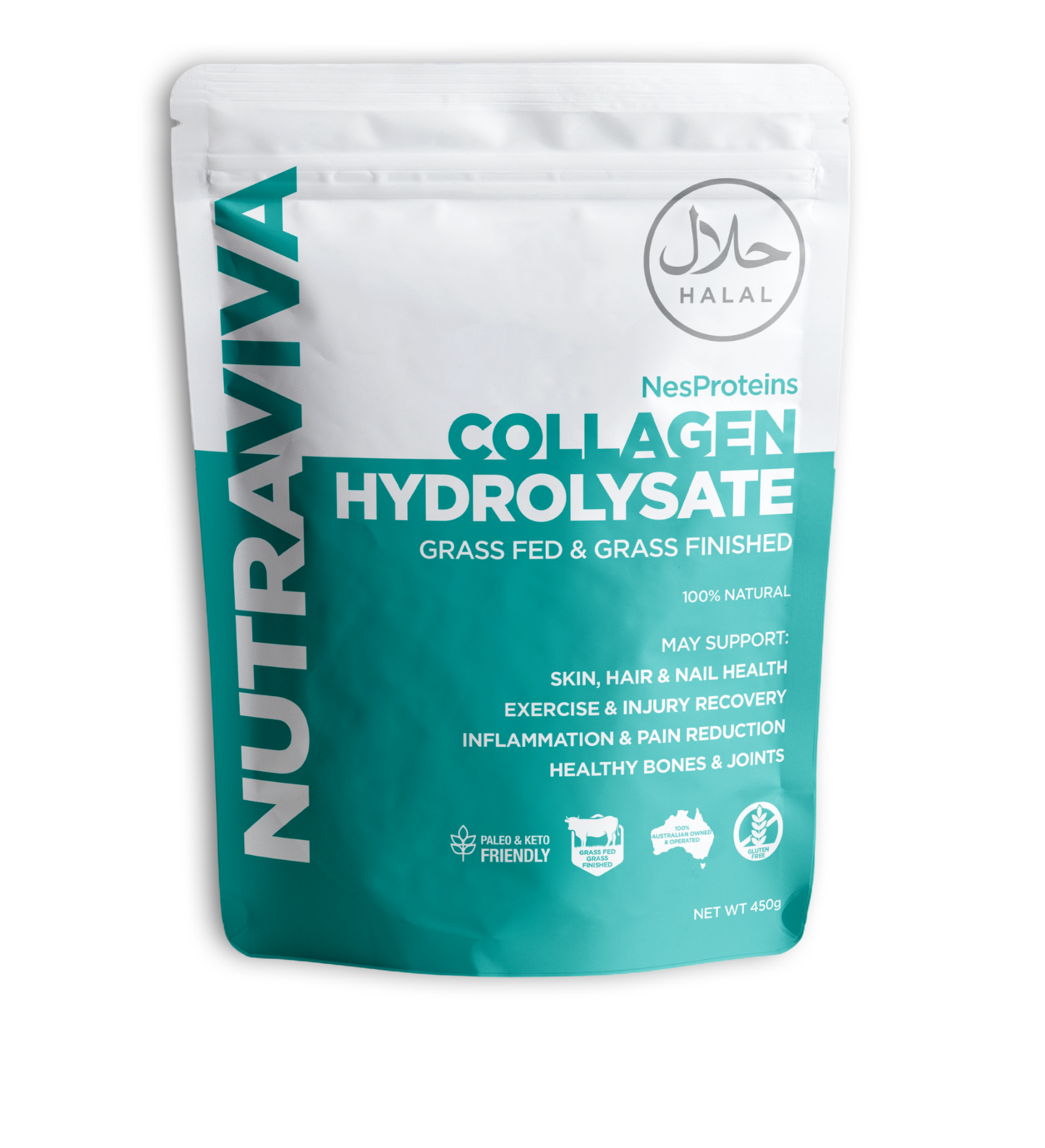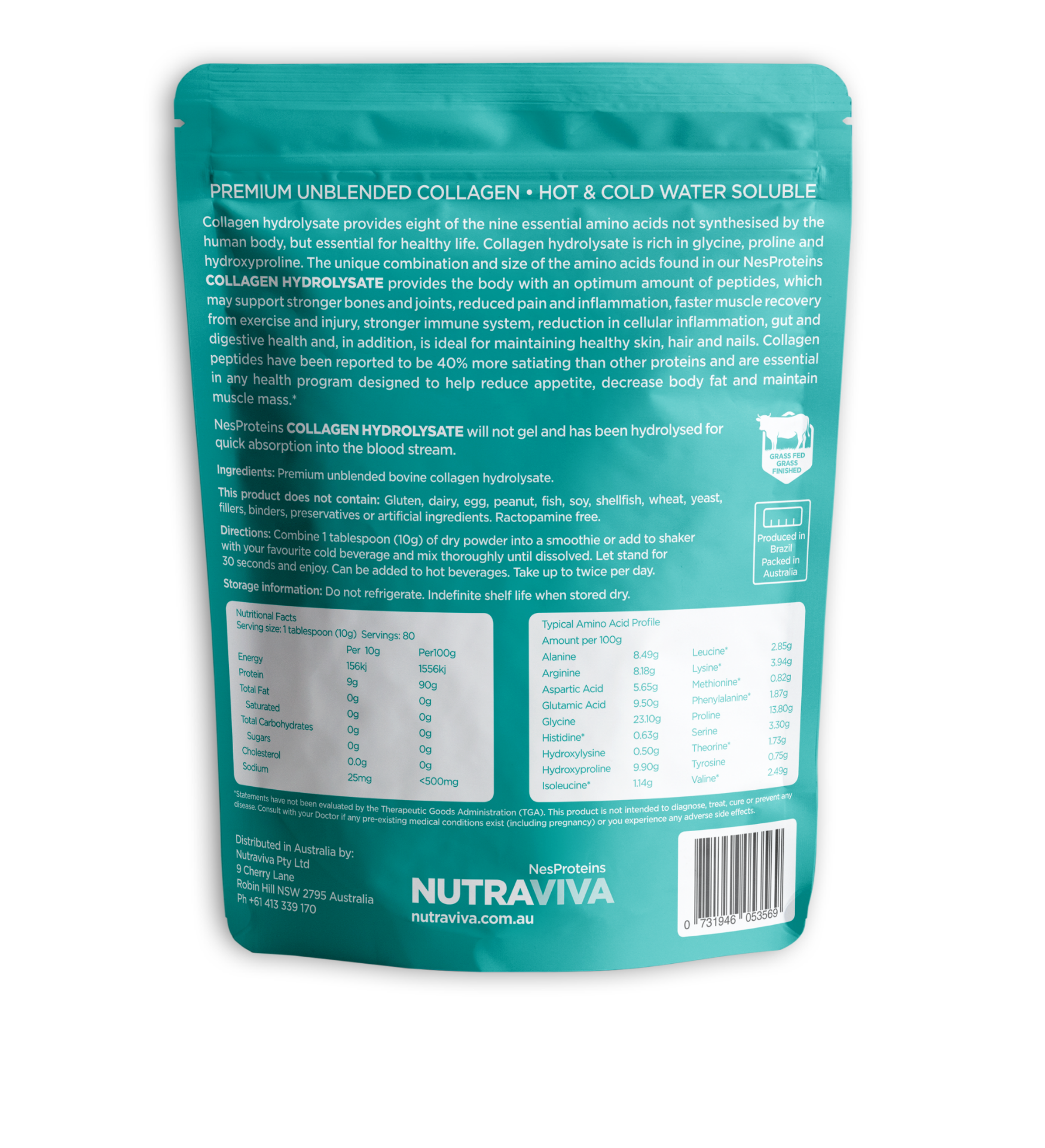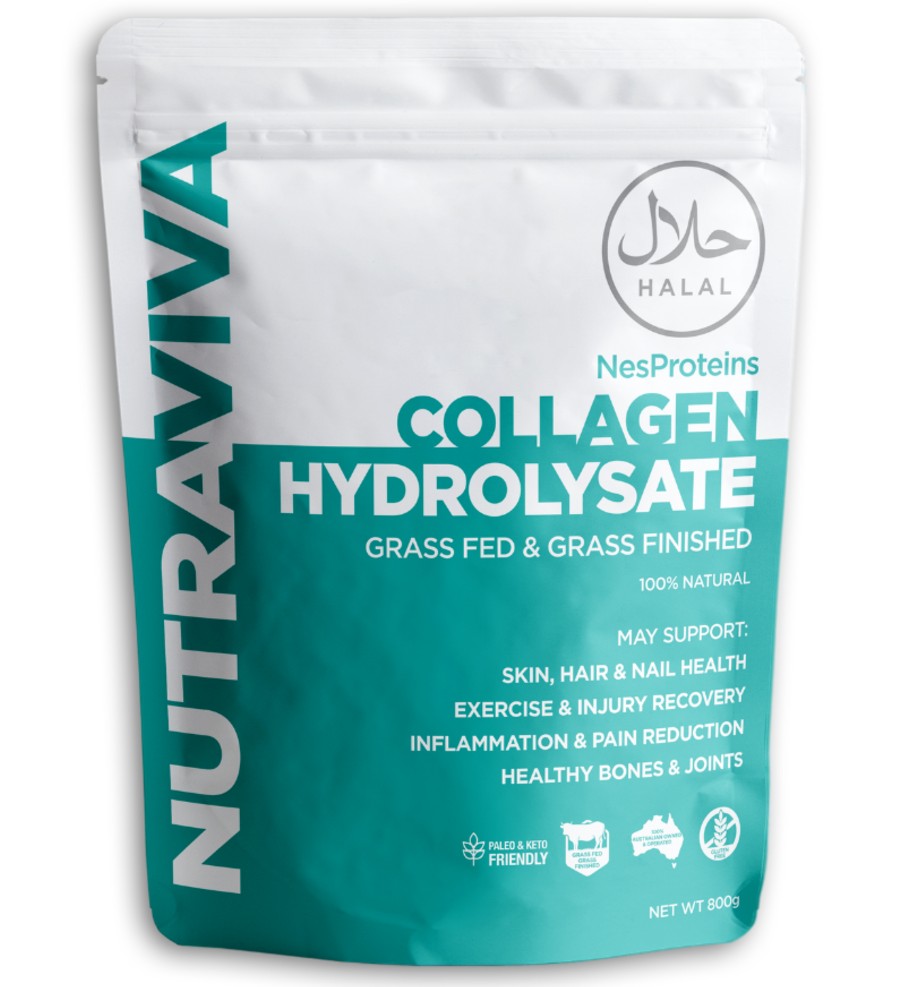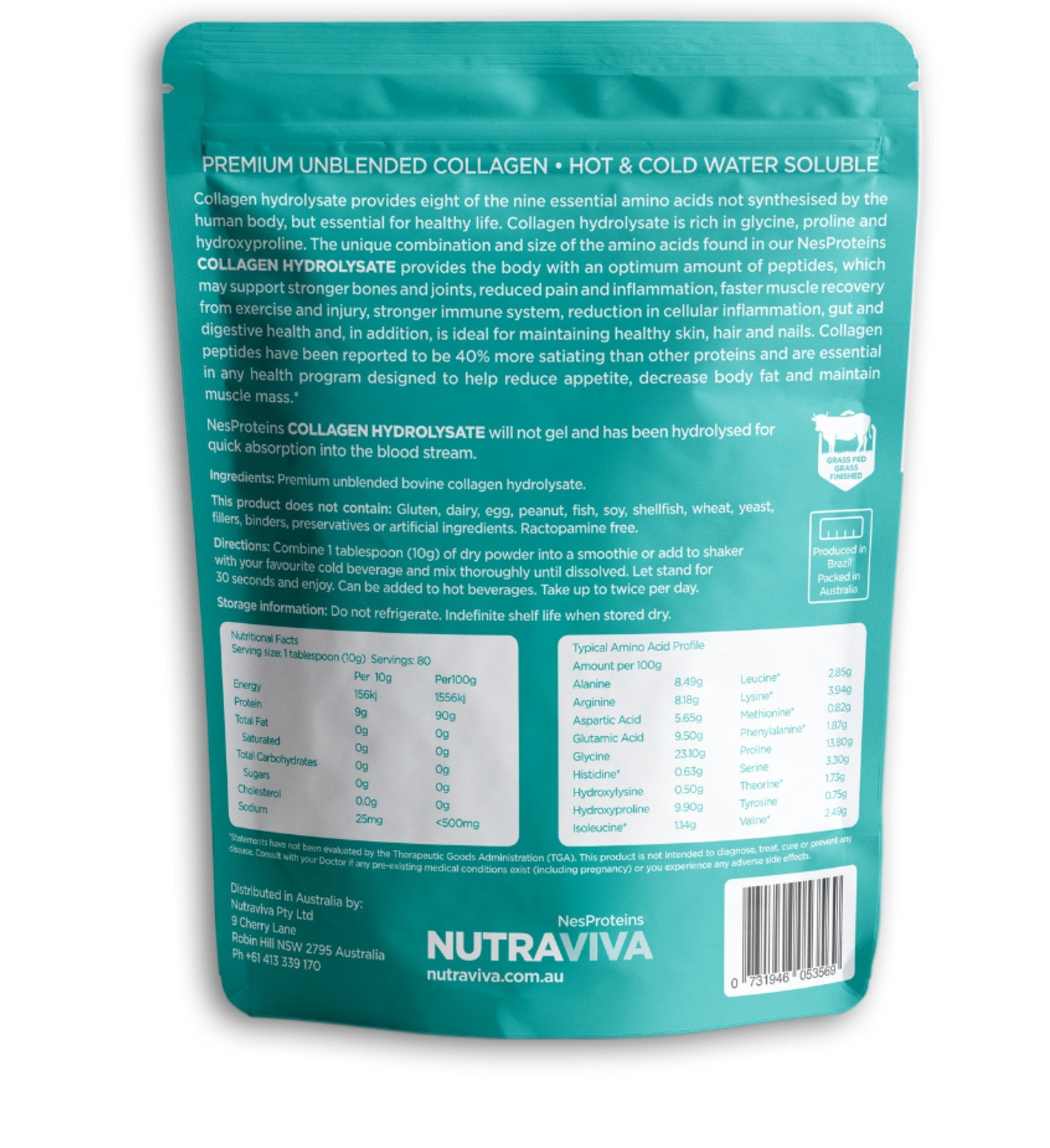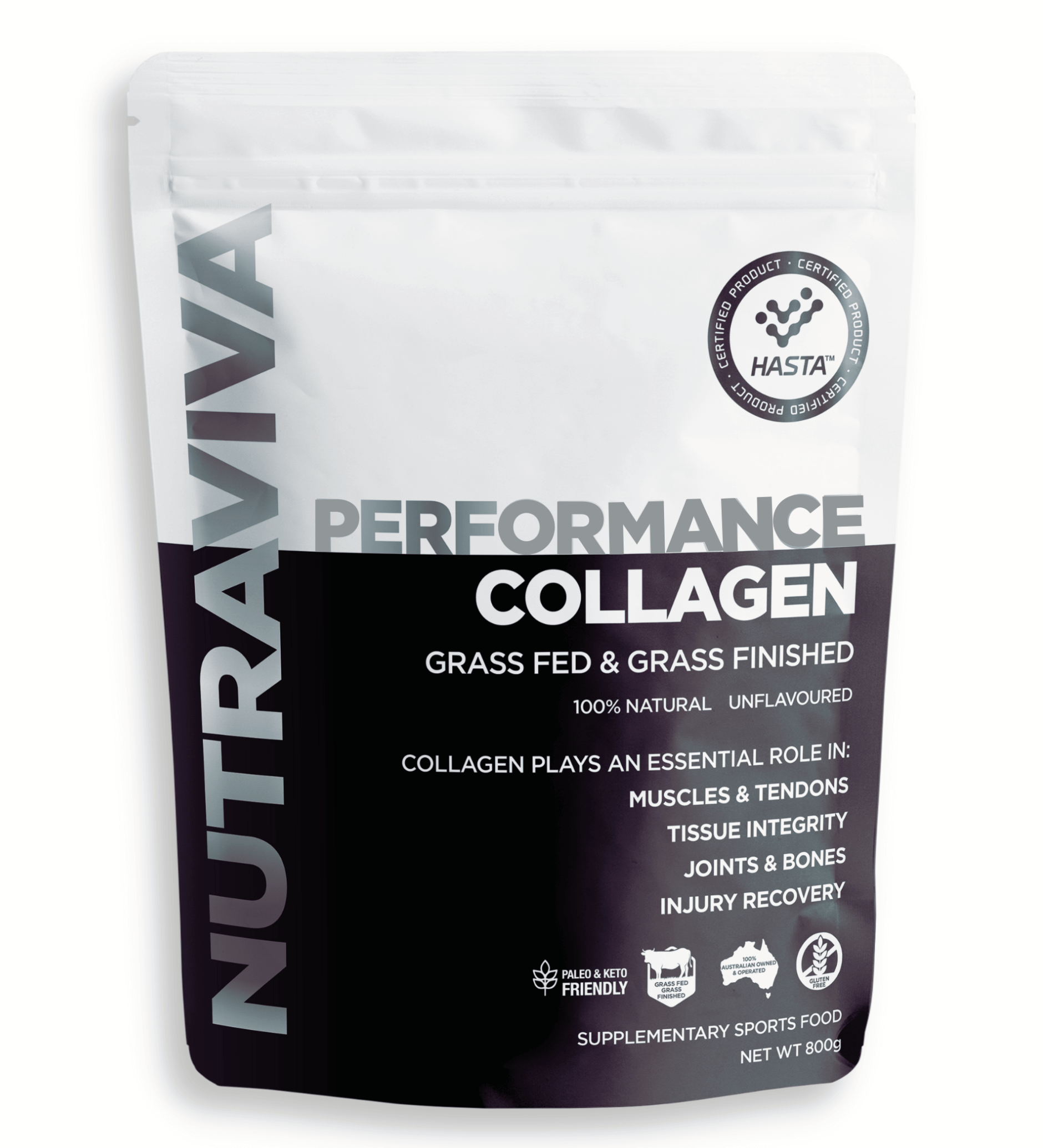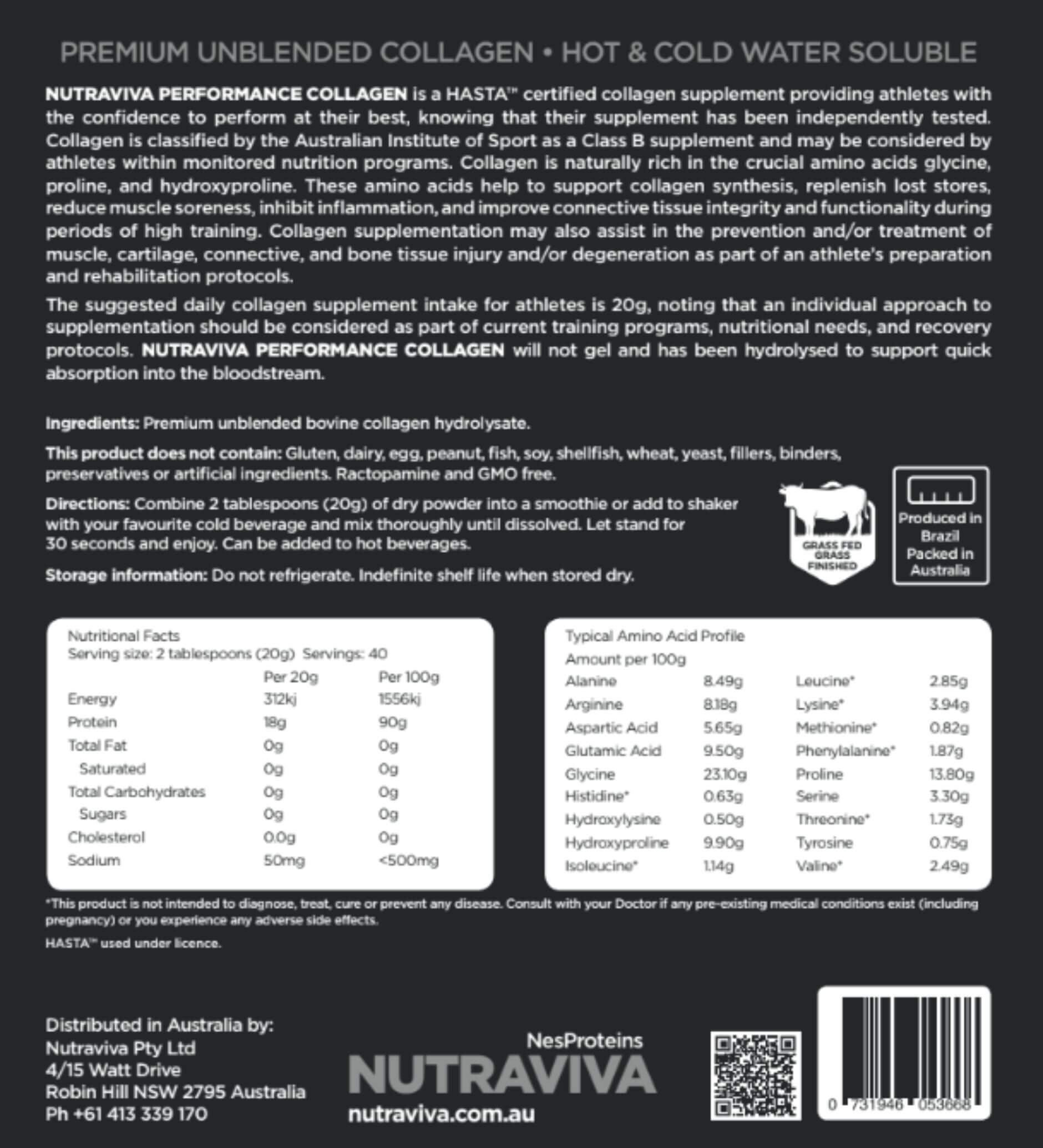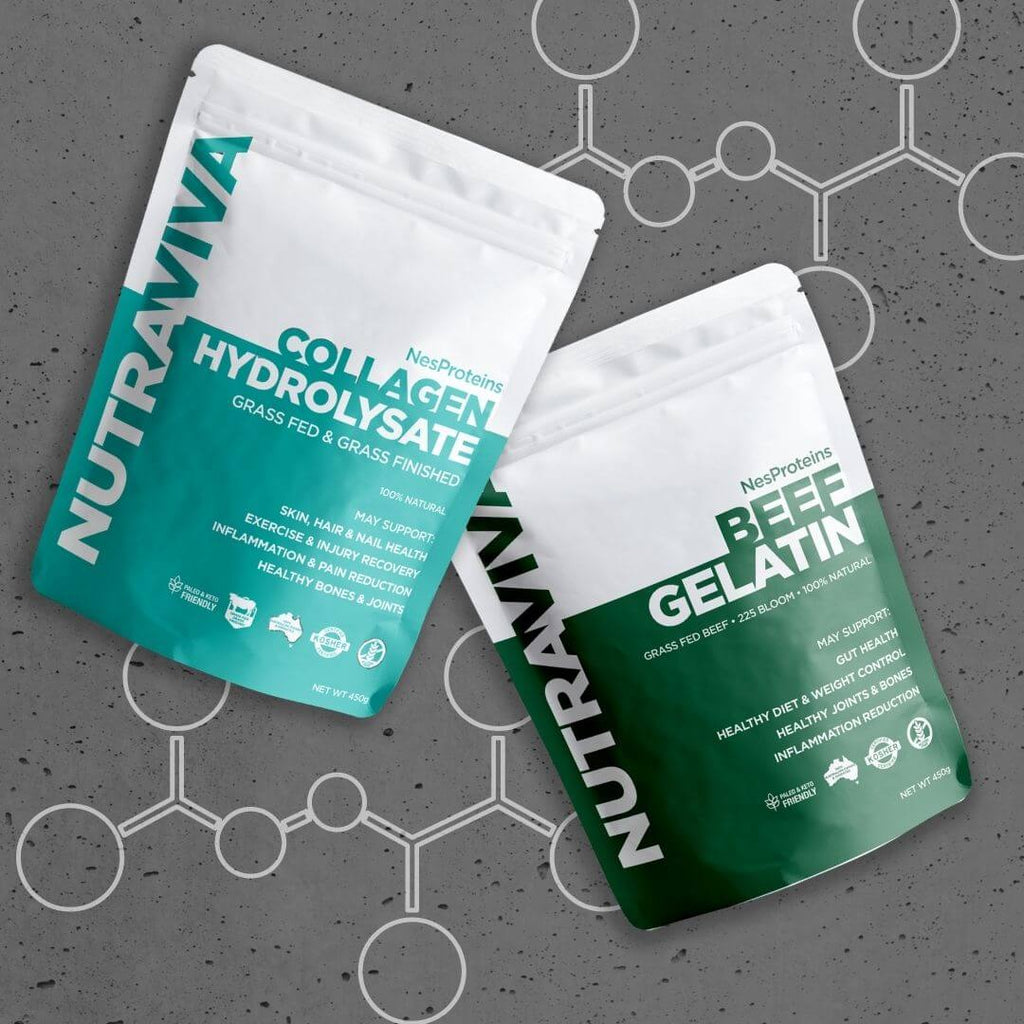
The Difference Between Collagen and Gelatin

The Difference Between Collagen and Gelatin
Collagen is a type of protein that is a major component of connective tissues. Humans and animals create their own collagen naturally, and it can be found in our skin, bones, gut lining, joints, nails, and hair. It brings many benefits to the body, including healthier skin, bone, and joints, but our body’s ability to produce collagen declines as we age.
By the time we reach our 30s we start to lose collagen faster than we can make it. Many individuals then turn to ingesting collagen to ensure the body has a higher level of collagen to gain the nutritional benefits it brings. At Nutraviva, we have a range of high-quality marine and bovine collagen protein powder for the best results.
Collagen and gelatin are both proteins rich in amino acids which is sourced from the collagen protein molecule found in the connective tissues of animals. While both are beneficial for your health, they require a different method of preparation, have a different texture, and have different culinary and nutritional applications.
What Is Collagen?
Collagen is a structural protein, and it is also the most abundant protein found in animals. Collagen is the main component of the connective fibres in tissues, such as your skin, cartilage, ligaments, bones, and teeth. Collagen makes up about a quarter of your entire body’s protein content and about 70 percent protein content of your skin.
Collagen provides cushioning for joints and tendons to stay healthy and active. It also allows the body to move, stretch, and bend. It supports your skins elasticity, strength, and integrity, hence the lack of collagen is responsible for visible signs of ageing, such as wrinkles. This is the reason why collagen is often referred to being the ‘glue’ that holds the body together.
Collagen is made up of 18 different amino acids. The most abundant amino acids in collagen include:
- Proline makes up about 15 percent of collagen. It protects your blood vessels, supports cardiovascular health, and provides joint cushioning.
- Glutamine helps to reduce anxiety, brain fog, insomnia, low energy, compromised immunity, and weakened digestive function.
- Glycine takes up about a third of all collagen. It helps the production of DNA strands, creatine formation, muscle growth, and energy regeneration.
- Arginine helps to create nitric oxide in your body, which is important for your immune system and cardiovascular function.
Other amino acids found in collagen include Alanine, Hydroxyproline, Glutamic acid, Aspartic acid, Serine, Lysine, Leucine, Valine, Threonine, Phenylalanine, Isoleucine, Hydroxylysine, Methionine, Histidine, Tyrosine, Cysteine.
Symptoms of Poor Collagen Production
Collagen is incredibly important for your body’s healthy functioning and overall health. Poor collagen production may lead to a variety of health issues, including but not limited to:
- Joint pain
- Skin blemishes
- Weakened nails
- Osteomalacia (bone softening)
- Increased frequency of injuries
- Osteoarthritis
- Repetitive injuries
- Tight Muscles and Joints
- Wrinkles
- Osteoporosis
- Hair thinning
The benefits of collagen for our bodies include:
Collagen Supports a Healthy Metabolism.
Glycine, one of the amino acids in collagen helps to form muscle tissue by converting glucose into energy to feed your muscle cells. Two other amino acids in collagen, arginine, and glutamine help to boost your body’s ability to make protein and fuel your cells to maintain energy. As a result, collagen supports healthy metabolism and may help your weight loss efforts.
Collagen Helps Repair and Heal Leaky Gut.
Leaky gut, or intestinal hyperpermeability, is a condition in which tight junctions in your gut lining become too large and allow undigested food particles and toxins into your bloodstream leading to chronic inflammation, gut problems, and health issues. Glycine and glutamine in collagen assist to repair damaged cells, rebuilding new tissue, and may improve gut health problems.
Collagen Strengthen Bones, Teeth, and Nails.
About one-third of your bones are made up of collagen. Healthy collagen levels are essential for strong bones, strong jaw, healthy teeth, and healthy gum tissues. It also supports nail growth and healthy nails.
Collagen Improves Skin and Hair Quality.
Collagen protein is an essential building block of your skin. It is very important for skin elasticity and moisture. Collagen is essential for reducing wrinkles and maintaining a youthful skin tone. Collagen is also important for healthy and strong hair, and for preventing hair loss.
Collagen Reduces the Appearance of Cellulite and Stretch Marks.
Collagen is essential for your skin’s elasticity, thinnest, and appearance. Hence it may help reducing cellulite and stretch marks.
Collagen Protects the Heart.
Collagen provides a structural framework for cardiac muscle cells. It provides the necessary stiffness to your heart wall, keeps your blood vessels strong, and helps repair tissue in the arteries.
Collagen Supports the Liver and Detoxification.
Your liver is your largest organ inside your body and is essential for detoxification. Glycine in collagen may help to reduce the damage to the liver from toxins, improve detoxification, and better your body’s use of antioxidants.
Collagen Repairs and Strengthens Joints, Tendons, and Ligaments.
Collagen is a gel-like, smooth substance that covers and holds your joints together. It makes up the connective tissues such as tendons and ligaments that hold your muscles and bones together. It serves as a cushion and ‘shock absorber’. Optimal collagen levels help bone, joint, tendon, ligament, and muscle health, and may reduce the risk and symptoms of osteoarthritis, rheumatoid and other arthritis pain, and joint pain in athletes.
Collagen Improves Sleep Quality.
Glycine in collagen may be a therapeutic option for improving your sleep quality. It is important for regulating cortisol levels and promoting healthy relaxations during sleep.
What Is Gelatin?
Cooking turns collagen sourced from animals into gelatin. Through a long and slow heating action, collagen proteins change through a process called denaturing. The collagen proteins become liquid, and once cooled again, they have the property of being gelatinous. The denaturing process will give soups and stews a nice flavour and texture, but also provides the body with amino acids for collagen production which improve your gut health, skin, hair, nails, and overall health.
The health benefits of gelatin include:
- Improving skin health
- Strengthening bones and joints
- Improving hair quality
- Providing plenty of healthy protein
- Boosting digestive function
- Helping weight loss
- Improving sleep
Collagen vs Gelatin
Gelatin has beneficial health benefits, but it can be tricky to make. Gelatin needs hot water to dissolve completely. If the water is not hot, but lukewarm or cold, you end up with a clumpy substance forming a gelatinous blob. It also needs to be ‘bloomed’ to be used in certain recipes.
Collagen peptides is gelatin broken down into smaller collagen protein peptides through the introduction of enzymes in a process called ‘cleaving’. These smaller peptides dissolve easily and may be mixed with water, smoothies, shakes, coffee, and other recipes. Find some of our delicious recipes here.
Collagen peptides possess all the important amino acids that gelatin does for proper collagen function and overall health. They may promote healthy, youthful skin, gut health, strong hair and skin, joint health, and overall health. They are also incredibly convenient and simple to use.
Often collagen peptides are referred to as hydrolysed collagen or collagen hydrolysate.
How to Boost Collagen Production
Collagen production naturally decreases as we age. Tips you may try to support your body’s healthy collagen production and your overall health include:
- Get your recommended daily serving of vitamin C through vitamin C rich foods.
- Eat foods that are rich in proline such as asparagus, cabbage, free-range eggs, mushrooms, watercress, and tempeh.
- Eat foods rich in glycine, such as bananas, cauliflower, kale, spinach, cucumber, and beans.
- Drink bone broth regularly.
- Eat clean protein such as grass-fed beef, free-range poultry, and organ meats.
- Try natural supplementation, such as collagen hydrolysate and beef gelatin.
- Aim for 7 to 9 hours of restful sleep a night.
- Aim for 8 to 10 glasses of water a day, more if you are working, spending time outdoors on the hot sun, using a sauna, or recovering from an illness.
Get to know Nutraviva
Since 2016, we have been committed to providing Australians with powerful, affordable collagen supplements. Our brand name, Nutraviva, comes from our motto – nutrition for life. Our goal is to help our customers find premium health support products in the most convenient package. If you want to learn more about our brand or products, feel free to send us an enquiry or call us on 0413 339 170.
Find out more about our premium collagen powder range here.
Written by Bruno Rossitt, Founding CEO Nutraviva, BEd(PhysEd)




